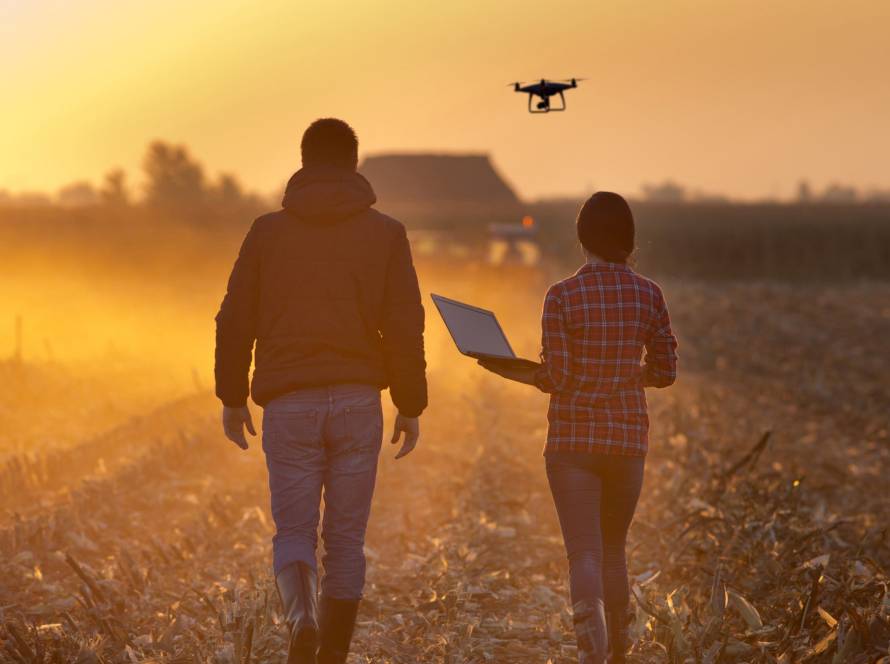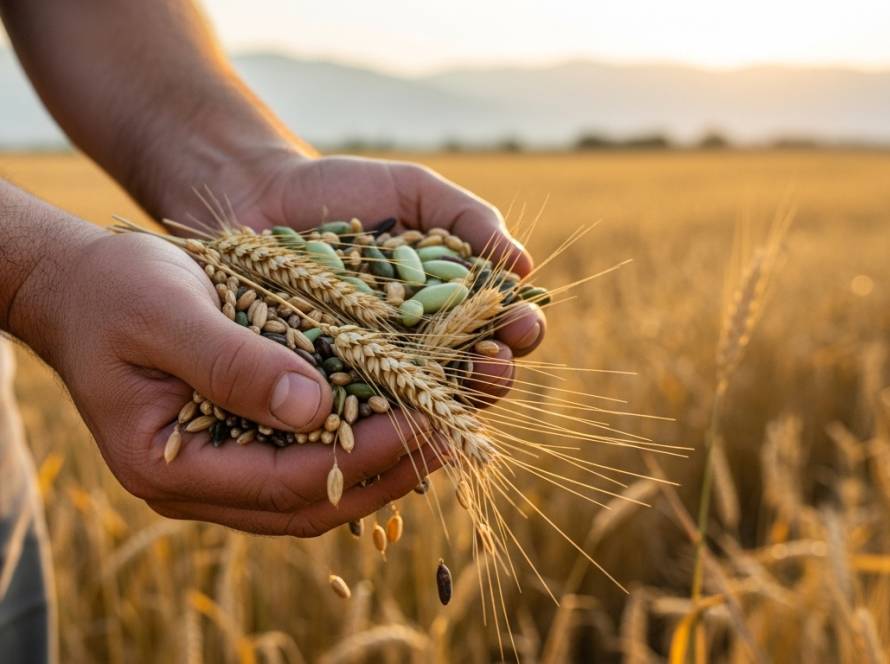Agriculture, one of humanity’s oldest activities, is now reaching a whole new level with the power of technology. Rising global food demand, climate change, and limited natural resources make efficient and sustainable solutions in agriculture more crucial than ever. At this point, artificial intelligence (AI) steps in, offering innovative solutions that optimize agricultural production, support sustainability, and reduce farmers’ workloads.
Let’s explore how artificial intelligence is transforming the agricultural sector and the advantages it brings!
How is Artificial Intelligence Used in Agriculture?
AI integrates with data analytics, machine learning, and the Internet of Things (IoT) to make farming more efficient. By analyzing agricultural processes, improving decision-making, and minimizing human error, AI is revolutionizing farming. Here are the key areas where AI is making an impact:
1. Precision Agriculture
Precision agriculture is an approach that allows farming activities to be planned based on data. AI analyzes information such as soil moisture, temperature, and pH levels from sensors and provides farmers with accurate insights.
- Soil Analysis: AI-powered systems analyze soil structure to determine the most suitable crops.
- Water Management: Integrated with drip irrigation systems, AI optimizes water consumption by analyzing plants’ water needs.
This ensures resources are used efficiently and waste is minimized.
2. Crop Yield Prediction
AI algorithms can predict crop yields based on historical data and weather forecasts.
- Yield Forecasting: AI analyzes field and plant images to detect diseases or yield losses in advance.
- Harvest Planning: AI guides farmers to harvest at the right time for maximum efficiency.
This technology helps farmers make smarter decisions and minimize yield losses.
3. Pest and Disease Management
Pests and diseases cause significant yield losses in agriculture. AI detects these risks early through plant imaging systems and drone technologies.
- Drones and Image Processing: AI-powered drones scan fields to detect leaf discoloration, fungal growth, or pest infestations.
- Smart Spraying: AI identifies which areas need treatment, minimizing the use of chemicals.
This reduces both costs for farmers and environmental damage.
4. Agricultural Robots
AI-powered agricultural robots can autonomously perform tasks such as planting, harvesting, and weeding. These technologies are a major solution in areas with labor shortages.
- Autonomous Tractors: AI-equipped tractors can operate in fields without human intervention.
- Harvesting Robots: Robots used for harvesting fruits and vegetables pick ripe crops with precision.
These automation systems lower labor costs and accelerate production processes.
5. Climate and Environmental Data Analysis
Climate change significantly impacts agricultural production. AI analyzes climate data to optimize agricultural planning based on changing conditions.
- Weather Forecasting: AI models predict sudden weather changes and provide farmers with early warnings.
- Disaster Risk Management: AI helps farmers take preventive measures against drought, frost, and other adverse conditions.
These systems enable the early detection of risks and reduce production losses.
The Future of Agriculture with Artificial Intelligence
Artificial intelligence plays a critical role in ensuring the sustainability of agricultural production. While increasing productivity, it also helps preserve natural resources. So, what does the future hold for us?
- Fully Automated Farms: With advanced AI systems, all processes from planting to harvesting will become autonomous.
- Smart Food Production: AI will analyze nutrient values to help grow healthier and more efficient crops.
- Digital Farmer Assistants: AI-based mobile applications will guide farmers and simplify daily agricultural tasks.
Shaping the Future of Agriculture with Technology
Artificial intelligence is revolutionizing the future of agriculture by offering a more efficient, sustainable, and smart production model. This technology not only saves farmers time and costs but also enables environmentally friendly farming practices.
Becoming part of the digital transformation in agriculture today means addressing the needs of tomorrow. With AI-powered smart agricultural solutions, a greener, more efficient, and safer world is possible!





